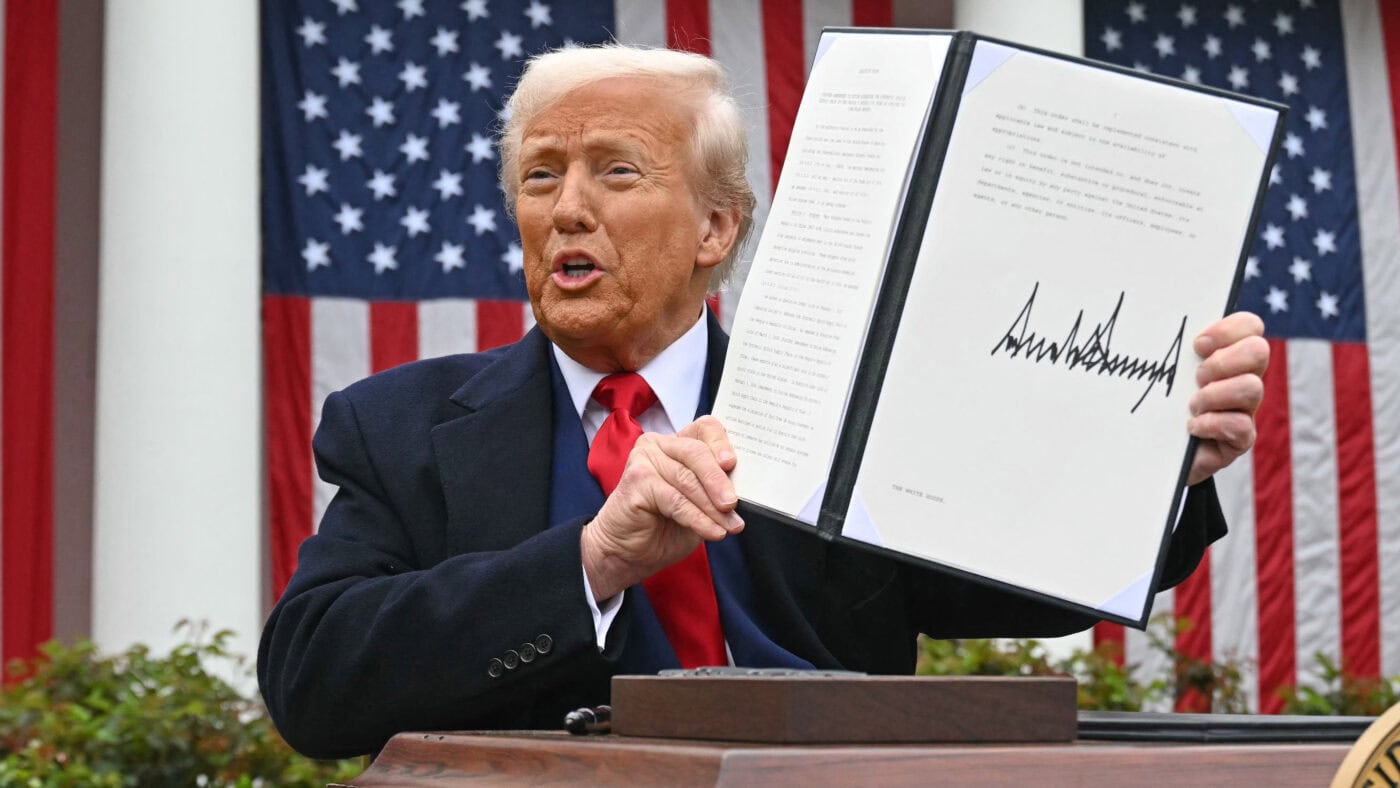Some 50 years ago, in her address to Conservative Party conference, Margaret Thatcher contrasted Britain to the Communist East: ‘They are not prosperous as we are prosperous, and they are not free as we in the West are free.’ This rhetoric largely defined the West’s foreign and economic policy for much of the next half century.
The UK would work in lock-step with the US to ensure that a pro-Western liberal order was upheld across the globe. As much as anything else, this was an exercise in example-setting. In the UK, Thatcher showed the world that unleashing an economy’s ‘animal spirits’ through policies that promoted competition, creativity and personal responsibility could transform a nation’s fortunes. Across the pond, Ronald Reagan, through tax cuts and reallocating government spending, did the same.
What existed between our two countries was a common ideological mission – grounded in sound economic thinking – to rubbish international socialism and bring those states emerging from behind the Iron Curtain into the fold.
The paradigmatic shift since has been dizzying. Under a decade ago, when I was studying politics at school, Francis Fukuyama’s ‘End of History’ essay was still considered to be – just about – the key Western political text of the modern age. How arrogant we were. The writing had been on the wall since the 2008 financial crash. The economic consensus built by Thatcher, Reagan and others was not seen to deliver the prosperity for working people it promised.
Rather than confidently reassert the case for free markets, free trade and low taxes, the leaders of this dying order allowed liberalism to drift. In the US and UK, taxes rose, migration soared and the principle of tolerance became bastardised by wokery and moral relativism.
By the time 2016 and the so-called ‘global political realignment’ came along, what remained in the US, the UK and the chancelleries of Europe were not the robust liberal institutions of the Thatcher-Reagan days, but blueprints for decline. It was little surprise that the likes of Donald Trump, Jair Bolsonaro and Rodrigo Duterte appealed to so many.
Nine years hence, Bolsonaro is standing trial on coup charges in Brazil and Duterte is banged up in The Hague for crimes against humanity, yet Trump is back in the White House. Just as the first time round, many in the West outside the United States underestimated how serious he and his base were about dismantling what’s left of international liberalism. Yesterday, on what he dubbed ‘liberation day’, Trump announced a raft of ‘reciprocal tariffs’ against countries which levy them against the US.
Like a fiscal game-show host, Trump displayed a board to the world’s media with a list of countries, each with two figures; the existing tariff imposed by the nation in question on US goods, and the new tariff to be levied on them in response. Some countries will be hit harder than others. Poor Lesotho has been lumped with a 50% tariff, EU-member states are at 20% and we in the UK have a 10% tariff to reckon with.
For many, including the leader of the Liberal Democrats, this means that we have to try and beat Trump at his own game and impose retaliatory tariffs. The rationale for this is rooted in the same zero-sum thinking about trade adopted by Trump. ‘How dare they! They can’t possibly get away with this!’ This is the siren call of the neo-mercantilist in 2025.
As Julian Jessop wrote in CapX this week, capitulating to the economically inept isn’t our only option. Jessop points out that imposing our own tariffs against the Americans is risky for two primary reasons. First is that British consumers will end up suffering the same fate as our counterparts in the US. Higher tariffs mean higher costs for producers which are passed on to consumers in the form of higher prices. The second is a matter of geopolitical prudence. Why tempt Trump’s volatility when we are currently at the lowest end of the tariff scale and, at the moment, enjoy fairly cordial relations with his administration?
There is a more fundamental risk, however. If we start reading from Trump’s hymn sheet and engage in protectionism ourselves, we will only deepen the crisis that liberalism – classically defined – finds itself in.
As more states levy charges against each other’s goods, we could easily find ourselves in a world where states exist in a constant state of Trumpian paranoia and where trade policy is driven by spite, rather than making citizens’ lives more affordable. This would serve nothing but Trump’s ego.
In the coming months and years, as American consumers are beset by increased prices and those who played Trump’s game suffer the same, the full extent of the damage will become clear, and the case for liberalisation will only strengthen.
Rather than lament the failure to properly implement liberal economics over the last couple of decades and surrender the philosophy entirely, this should be seen as an opportunity for the UK to revive it at home. Only yesterday, Jeremy Hunt recommended that, rather than feebly attempting to punish Trump for his petulance, that Britain harness Brexit freedoms to liberate private enterprise and competition and establish – dare I say it – ‘Singapore-on-Thames’.
This is the kind of thinking that will allow us not only to weather the Trump years, but to thrive during them. Economic liberalism may be in a tough spot, but if we focus on what we know enriches our economy, as opposed to actively engaging in practices that damage it, we can once again show the world the route to prosperity. For Trump, this would prove his toughest act of spin yet.
Click here to subscribe to our daily briefing – the best pieces from CapX and across the web.
CapX depends on the generosity of its readers. If you value what we do, please consider making a donation.


